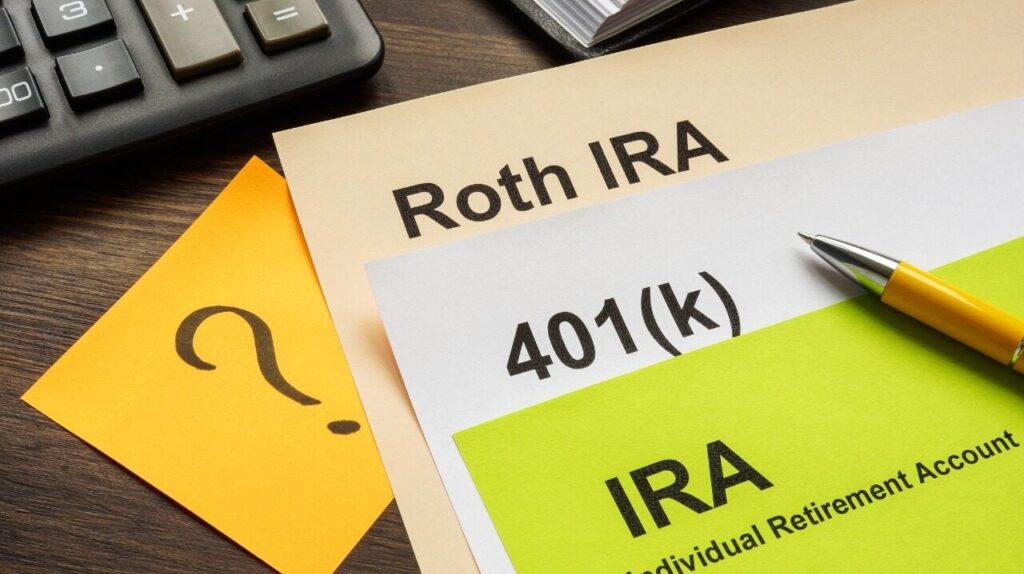Retirement planning is an important aspect of everyone’s financial journey. It involves making crucial decisions about saving, investing, and preparing for the post-work years. While some individuals may feel confident navigating this process on their own, many find it beneficial to seek guidance from a retirement planning advisor. If you are considering enlisting the help of an advisor, it’s crucial to understand their role and responsibilities, as well as consider several factors before making your decision. In this article, we will take a closer look at what you need to know when choosing a retirement planning advisor.
Understanding the Role of a Retirement Planning Advisor
Retirement planning advisors play a pivotal role in helping individuals secure a financially stable and fulfilling future. They are professionals who specialize in providing guidance on various retirement-related matters, such as investment strategies, tax planning, income distribution, and estate planning. By leveraging their expertise and industry knowledge, retirement planning advisor help clients navigate the complexities of retirement planning with confidence.
Key Responsibilities of a Retirement Planning Advisor
A retirement planning advisor has several responsibilities that are crucial to the success of their clients’ retirement plans. These responsibilities include:
Analyzing financial information
Advisors gather and analyze their clients’ financial information to assess their current financial situation.
Setting retirement goals
Based on the analysis, advisors work with clients to define their retirement goals and establish a roadmap to achieve them.
Developing investment strategies
Advisors create personalized investment strategies that align with clients’ goals, risk tolerance, and time horizon.
Monitoring progress
Retirement planning advisors regularly monitor their clients’ portfolios and make adjustments as needed to ensure they stay on track to meet their retirement objectives.
Providing ongoing advice
Advisors offer ongoing advice and support to address any changes in their clients’ financial circumstances or goals.
How a Retirement Planning Advisor Can Benefit You
Enlisting the help of a retirement planning advisor can provide several advantages. Firstly, advisors have expertise in navigating the retirement landscape, allowing them to identify opportunities and risks that individuals may overlook. They can help optimize investment strategies to maximize returns while minimizing risk.
Additionally, advisors can provide valuable insights into tax planning strategies that can help individuals reduce their tax liabilities in retirement. They also guide clients through complex retirement income decisions, such as Social Security claiming strategies, pension options, and withdrawal strategies from different retirement accounts.
Furthermore, retirement planning advisors can offer peace of mind. Knowing that you have a trusted professional overseeing your retirement plan can alleviate stress and provide confidence that you are on the right track to achieving your financial goals.
Moreover, retirement planning advisors understand that retirement is not just about financial planning; it’s also about lifestyle planning. They take into consideration your unique interests, hobbies, and aspirations for your retirement years. Whether you dream of traveling the world, starting a new business, or dedicating your time to philanthropic endeavors, a retirement planning advisor can help you create a comprehensive plan that aligns with your personal goals.

In addition, retirement planning advisors stay up-to-date with the latest industry trends and regulations. They continuously educate themselves to ensure they are well-equipped to provide the most relevant and accurate advice to their clients. This commitment to ongoing learning and professional development sets retirement planning advisors apart and ensures that they can offer the highest level of service and expertise.
Lastly, retirement planning advisors understand that retirement planning is not a one-size-fits-all approach. They recognize that each individual has unique circumstances and goals. Therefore, they tailor their advice and recommendations to suit your specific needs. Whether you are a conservative investor looking for stable income streams or an aggressive investor seeking higher returns, a retirement planning advisor can customize a plan that aligns with your risk tolerance and financial objectives.
Factors to Consider When Choosing a Retirement Planning Advisor
Choosing the right retirement planning advisor is a decision that should be approached with careful consideration. Here are some essential factors to evaluate when making your selection:
Retirement planning is a critical aspect of financial management, and having a knowledgeable advisor by your side can make a significant difference in achieving your retirement goals. Beyond the basic considerations, there are additional factors that can help you make a more informed decision when selecting an advisor.
Qualifications and Credentials
When evaluating potential advisors, it’s essential to review their qualifications and credentials. Look for individuals who hold relevant certifications such as Certified Financial Planner (CFP) or Chartered Retirement Planning Counselor (CRPC) to ensure they have met a high standard of professional competence and ethics. Additionally, consider if the advisor has any specialized training or expertise in areas that are particularly relevant to your retirement needs, such as estate planning or tax optimization strategies.
Experience and Expertise
Experience plays a crucial role in the quality of advice an advisor can offer. Consider the number of years an advisor has been in practice, as well as their expertise in retirement planning specifically. Look for professionals who have a track record of successfully guiding clients through retirement. It can also be beneficial to inquire about the types of clients the advisor typically works with to ensure they have experience dealing with situations similar to yours.
Fee Structure and Transparency
Understanding an advisor’s fee structure is vital to ensure it aligns with your financial situation and preferences. Some advisors charge a percentage of assets under management (AUM), while others may charge a flat fee or an hourly rate. Make sure the fee structure is transparent and that you fully comprehend what services are covered. In addition to the fees, inquire about any potential conflicts of interest that may arise from the advisor’s compensation structure, as this can impact the recommendations they provide.
Questions to Ask a Potential Retirement Planning Advisor
When meeting with potential retirement planning advisors, it’s essential to ask the right questions to gain a deeper understanding of their services and approach. Here are some key questions to consider:
Inquiring About Their Clientele
Ask advisors about their typical clientele. Do they primarily work with individuals in a similar financial situation or with similar goals? This will help you determine if their expertise aligns with your needs.
Understanding the advisor’s client base can provide insights into their experience and specialization. For example, if an advisor mainly works with high-net-worth individuals, they may have strategies tailored to wealth preservation and estate planning. On the other hand, advisors focusing on young professionals may emphasize growth-oriented investments and debt management strategies.
Understanding Their Investment Philosophy
Discuss the advisor’s investment philosophy and strategy. Are they focused on active management or passive investing? Do they have a long-term approach or do they make frequent changes to their clients’ portfolios?
Exploring their investment philosophy can give you a glimpse into their decision-making process and risk tolerance. Advisors following a passive investing approach may prioritize low-cost index funds and diversification, while those favoring active management might seek to outperform the market through strategic stock selection.

Assessing Their Communication Style
Good communication is vital for a successful advisor-client relationship. Ask potential advisors how often they communicate with their clients and what methods they prefer to use. Determine if their communication style aligns with your preferences.
Effective communication is key to staying informed about your financial goals and investment performance. Advisors who schedule regular check-ins and provide clear, jargon-free updates can help you make well-informed decisions. Consider whether you prefer detailed quarterly reports, frequent phone calls, or in-person meetings to ensure a communication fit with your advisor.
Making the Final Decision: Selecting Your Retirement Planning Advisor
After gathering all the necessary information and evaluating potential retirement planning advisors, it’s time to make your final decision. Here are some key steps to guide you in this process:
Choosing the right retirement planning advisor is a crucial step towards securing your financial future during your retirement years. It’s essential to find an advisor who not only possesses the necessary qualifications and expertise but also someone with whom you feel comfortable discussing your financial goals and concerns.
Evaluating Your Comfort Level
Consider how comfortable you feel with each advisor you’ve met. Establishing a rapport and feeling at ease discussing your financial matters is crucial for a successful partnership. A good advisor should be a good listener, understanding your unique needs and tailoring a plan that aligns with your goals.
Building a strong relationship with your retirement planning advisor is key to ensuring effective communication and trust throughout the planning process. Look for an advisor who values transparency and keeps you informed every step of the way.
Weighing the Pros and Cons
Make a list of the advantages and disadvantages of each advisor. Consider factors such as their qualifications, experience, expertise, and fee structure. This comparison will help you make an informed decision. Remember to also take into account any testimonials or reviews from other clients to gauge the advisor’s reputation and track record.
When assessing the pros and cons of each advisor, think about how their investment strategies align with your risk tolerance and financial objectives. A thorough evaluation of these factors will help you select an advisor who can help you navigate the complexities of retirement planning with confidence.
Taking the Next Steps After Choosing Your Advisor
Once you have selected your retirement planning advisor, it’s time to take the next steps. Work with your advisor to establish clear goals and develop a comprehensive retirement plan. Regularly review and update your plan to ensure it remains aligned with your changing circumstances and objectives.
Collaborating with your advisor on a continuous basis is essential for adapting your retirement plan to accommodate life changes, market fluctuations, and evolving financial goals. By maintaining open communication and staying proactive in your financial planning, you can work towards a secure and prosperous retirement.
Choosing a retirement planning advisor is an important decision that can significantly impact your financial future. By understanding the role and responsibilities of an advisor, considering essential factors, asking the right questions, and making a well-informed decision, you can find a trusted partner who will guide you towards a secure and fulfilling retirement.
Related: Maximizing Your Golden Years with Top Retirement Planning Strategies

Leave a Reply